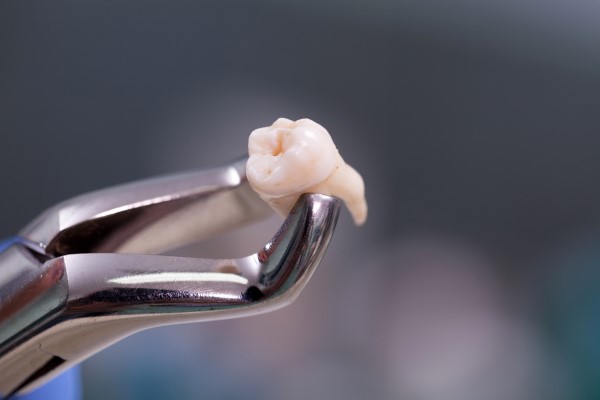What To Expect During a Tooth Extraction
The process of involves removing a tooth from the mouth by either surgically removing it from the gums or pulling it out using forceps. People may need a tooth pulled if it is affected by severe tooth decay or the surrounding tissues are infected from gum disease. Trauma to the mouth or overcrowding are other common reasons a simple extraction might be necessary. Impacted teeth, including wisdom teeth, can be removed from the mouth using surgery. Depending on what procedure is necessary, this is what you can expect when having a tooth extracted.
Preparing for a tooth extraction
Before removing a tooth, the dentist will typically take an X-ray of the area, which can include a panoramic X-ray if getting wisdom teeth removed. The dentist can discuss the patient’s medical history and inquire about any conditions that can interfere with the procedure. Depending on the situation, the patient may be given antibiotics before surgery.
Patients should be given instructions such as details on what to wear on the day of the procedure and information on how long before to limit food and water intake. Driving arrangements should need to be made ahead of time if necessary, as a patient may not be able to drive immediately following the procedure. It is important for the individual to refrain from smoking the day before surgery to avoid developing dry sockets.
The procedure
What patients can expect for the actual tooth extraction procedure depends on if a simple or surgical extraction is required. For a simple extraction, the patient will be given a local anesthetic to numb the area surrounding the tooth. The dentist will loosen the tooth using a tool called an elevator and remove it from a mouth with forceps.
For a surgical extraction, the patient may be given anesthesia or other medications to relax the patient and numb the area. The gums are cut open to remove the tooth, which may require breaking it into pieces, and then the gums are stitched closed.
Recovery
The recovery period and level of pain experienced following tooth extraction are typically more severe for a surgical extraction than a simple extraction. It often takes a couple of days to fully recover from the removal. Ice packs can be used to reduce swelling and the dentist will likely prescribe painkillers. Gauze is applied to the site to help the blood clot. Patients will need to avoid using straws and eat a soft diet for a day or more until the site heals. While patients can expect some discomfort following a tooth extraction, excessive pain or swelling can indicate an infection and should be looked at immediately.
Conclusion
Often, removing teeth is used as a last resort in situations where other solutions, such a root canal or orthodontic treatment, are not possible. It is important that patients are open with dentists when discussing their medical history to explore possible risks involved in having teeth removed.
Request an appointment here: https://newyorkdmd.com or call New York DMD at (917) 284-9680 for an appointment in our New York office.
Recent Posts
If you have never sat in the dentist's chair for a tooth extraction, your upcoming procedure may seem unnecessary or too uncomfortable to bear. Remember that the dentist will explain the procedure beforehand and assure an experience that is as comfortable, quick, and painless as possible.The most common reasons for tooth extraction are that the…
Tooth extraction can be frightening, but it is often necessary in order to keep a healthy mouth. There are a few important things to note about what comes after a tooth extraction, whether it be recovery or replacing the extracted tooth. In this article, we go over tooth extractions and what comes afterward. If you have…
Thinking that a tooth extraction is in your near future? While it is ideal to save any teeth that are in jeopardy of being lost, sometimes a tooth cannot be saved. When one or more of your teeth are not savable, you will need to have them extracted from your mouth. Once you are missing…
Do you think your wisdom teeth may need to be removed? Read on to learn more about this procedure and when it is recommended. The extraction of wisdom teeth, whether complete or partial, is a standard procedure that comes by recommendation of a dentist. Sometimes, it could be because they were coming in crooked or…


